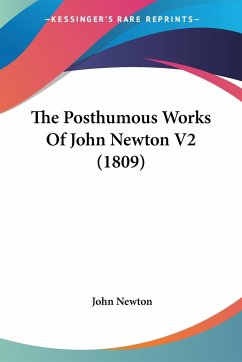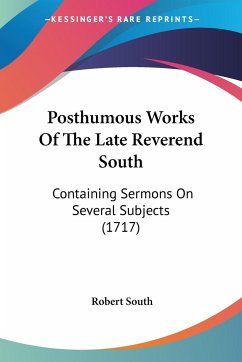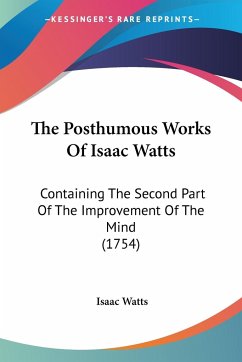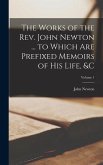The Posthumous Works of John Newton V2 is a book written by John Newton and published in 1809. It is a collection of the author's writings that were published after his death, including sermons, letters, and other works. John Newton was a prominent figure in the evangelical movement in England in the 18th century, and his writings were widely read and influential. The book provides a glimpse into the mind and beliefs of this important historical figure and is a valuable resource for anyone interested in the history of Christianity or the evangelical movement.This scarce antiquarian book is a facsimile reprint of the old original and may contain some imperfections such as library marks and notations. Because we believe this work is culturally important, we have made it available as part of our commitment for protecting, preserving, and promoting the world's literature in affordable, high quality, modern editions, that are true to their original work.
Hinweis: Dieser Artikel kann nur an eine deutsche Lieferadresse ausgeliefert werden.
Hinweis: Dieser Artikel kann nur an eine deutsche Lieferadresse ausgeliefert werden.








